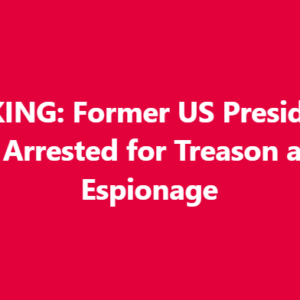The October 2025 Government Shutdown: A Political Analysis
The federal government officially shut down at 12:01 a.m. on October 1, 2025, after the Senate failed to advance either of two competing funding bills. A GOP-backed bill to fund the government through November 21 was defeated 55–45, despite support from three Democrats. Conversely, all Senate Republicans opposed a Democrat-proposed resolution to extend funding through October and maintain Affordable Care Act (ACA) subsidies. The shutdown, the first since the 2018–2019 standoff, occurred as Republicans now control both congressional chambers and the White House under President Trump and Vice President JD Vance.
Livestream Effort Falls Short
In an attempt to rally public support, House Minority Leader Hakeem Jeffries hosted a livestream titled “Stop the Republican Shutdown.” However, the event attracted fewer than 200 viewers, with some reports indicating as few as 93 viewers during peak times. This low turnout has been criticized as a misstep in messaging. Additionally, Jeffries’s office was reported closed hours into the shutdown, further undermining the Democrats’ position.
Public Opinion Divided
Public opinion on the shutdown is mixed. A Washington Post poll conducted on October 1, 2025, among 1,010 U.S. adults revealed that a majority of Americans blame President Trump and congressional Republicans more than Democrats for the ongoing partial federal government shutdown. By a 17-point margin, more respondents held Republicans responsible, though 23% were unsure.
Federal Agencies’ Partisan Messaging
In an unprecedented move, several federal agencies, including the Department of Housing and Urban Development (HUD), the Department of Justice (DOJ), and the U.S. Department of Agriculture (USDA), displayed banners on their websites blaming “Radical Left Democrats” for the shutdown. These actions have raised concerns among ethics experts, who argue that such partisan messaging may violate federal laws like the Anti-Lobbying Act and the Hatch Act.
Democrats’ Messaging Strategy Criticized
Democrats have emphasized the importance of extending Affordable Care Act subsidies and reversing Medicaid cuts. However, Republicans have rejected these demands, blaming Democrats for the impasse. The effectiveness of Democrats’ messaging is a matter of opinion and varies among different audiences.
The October 2025 government shutdown has highlighted deep partisan divides and raised questions about the effectiveness of political strategies employed by both parties. While public opinion remains divided, the actions and messaging from both Democrats and Republicans continue to shape the narrative surrounding the shutdown.





